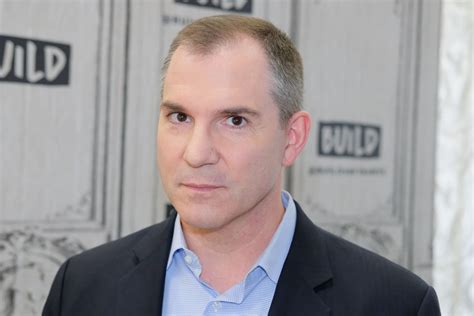A Quote by Peter Moskos
There's no straight line between closing the mental institutions and filling the prisons but there is some sort of relationship. And it's hard to tell how much mental illness among prisoners came in with them and how much is because of prison. I just imagine the real tragedy is there's probably a huge number of people who went in a little bit f - ked up and left completely insane because it's just a horrible treatment.
Quote Topics
Related Quotes
I think mental illness or madness can be an escape also. People don't develop a mental illness because they are in the happiest of situations, usually. One doctor observed that it was rare when people were rich to become schizophrenic. If they were poor or didn't have too much money, then it was more likely.
When you have mental illness you don't have a plaster or a cast or a crutch, that let everyone know that you have the illness, so people expect the same of you as from anyone else and when you are different they give you a hard time and they think you're being difficult or they think you're being a pain in the ass and they're horrible to you. You spend your life in Ireland trying to hide that you have a mental illness.
Often, when you're growing up, you don't know what's wrong. We don't talk openly enough about mental illness. How do you know - especially today with the incredibly high stress teens are put under during high school - if you have depression or if you have a mental illness or if you have anxiety? You don't know, because you've never seen it.
Look at how lucky white people are compared to black people, who have suffered so much just because of their skin color, and then there are native people, who were the first people of this country and have suffered so much just because some newcomers came over and said 'hey this looks like a nice place to set up camp, just hand it over to us.'
...It's all sort of dreams and it's all illusion. It's theater; it's not real. We're making up stories, you know, and people tend to run into you and believe you are your characters. And I suppose the funny thing is the longer you go, you do become sort of some version of [your characters]. You both diverge from them - you know - you live, but you also permanently inhabit that geography and that mental space - and so you do morph a little bit. We do become what we imagine.
I don't think people talk about mental illness a lot, but they need to know it's OK to talk about how they are feeling. People are afraid of telling the truth because they think it's going to hurt everyone around them. I've kept so much inside that I've literally lost it. I wish more people would get help when they feel like they need it-- not just to look to medicine, but to the support of others.
It's interesting, once I have convinced people that, yes, I have a sister with a mental disability, the retard jokes really dry up, so I'm not sure how much retard humor is really going on out there, but I imagine there's a lot because it's a pretty safe group to make fun of. It's not like the Retards of America are gonna rise up and organize a protest. They're not gonna write letters. They only just recently got the Supreme Court to stop executing them.
The very term ['mental disease'] is nonsensical, a semantic mistake. The two words cannot go together except metaphorically; you can no more have a mental 'disease' than you can have a purple idea or a wise space". Similarly, there can no more be a "mental illness" than there can be a "moral illness." The words "mental" and "illness" do not go together logically. Mental "illness" does not exist, and neither does mental "health." These terms indicate only approval or disapproval of some aspect of a person's mentality (thinking, emotions, or behavior).
There was a guy with mental illness in the middle of the street just yelling and hollering. I have a number that I can call - it's not 911 - to tell them, "You need to help this man get out of the street." But you have to be that person, you have to pick up the phone, you have to do it; you can't just walk by and act like they're not people. They're somebody's kid, somebody's dad, somebody's brother.
Mathematics can have its problems, but it's actually hasn't seen a lot of the problems as some of the other sciences and so much of it in what people are doing is completely useless. Nobody kind of in really cares very much. You don't really have kind of right and left and people in ideology coming in because there isn't any. It just doesn't actually connect up to the kinds of things that people ideologically worry about. So most of mathematics just doesn't tell you anything one way or another about global warming or about healthcare or about any number of things that you might care about.
I think with Donald Trump we're seeing the sort of utterly vanished line at long last of enter - between entertainment and politics. I mean there's always been an enormous dose of entertainment in politics. Trump has completely erased that line but the Trump phenomenon when it comes to where the media's culpability is how much we should be beating ourselves up, that's a complicated question because one of the distinctive features of our era is we know exactly what consumers are doing almost in real time.

































